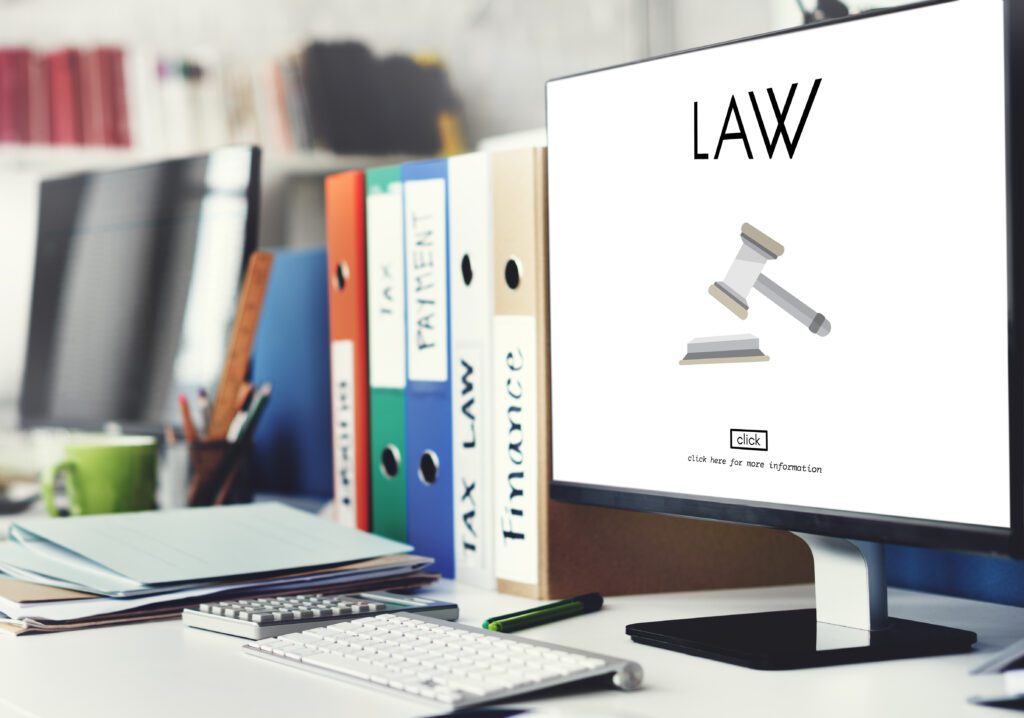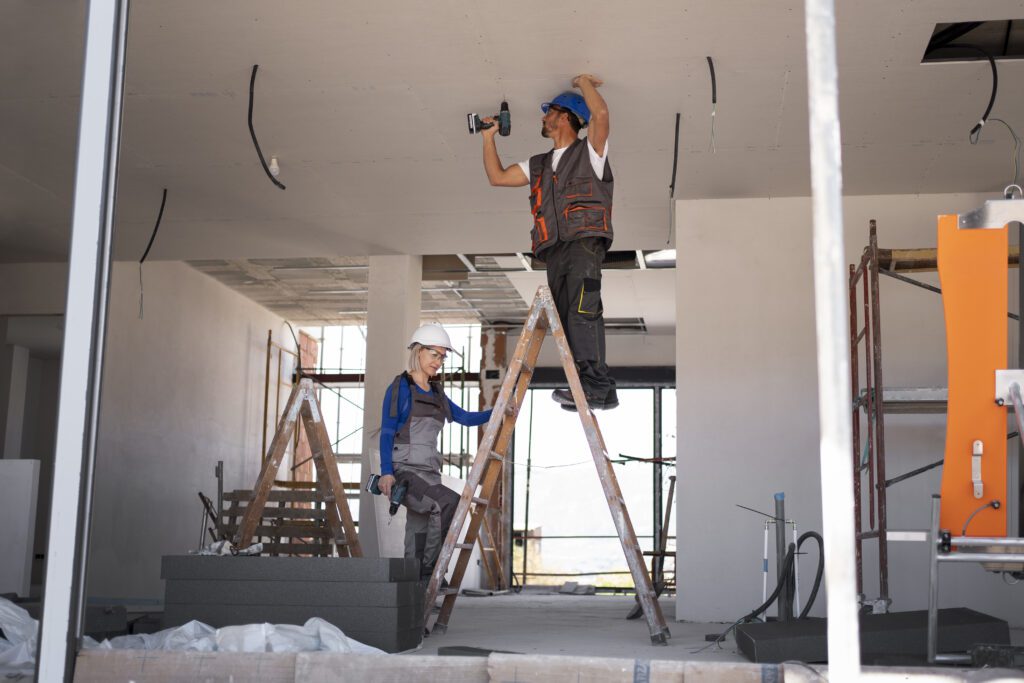SINCE 1988
203-546-7793

Leasing an industrial property comes with a unique set of responsibilities. For businesses and individuals considering an industrial property for lease, it’s crucial to understand these obligations to ensure a smooth and compliant tenancy. Here, we will delve into the eight key tenant responsibilities in an industrial property for lease, specifically focusing on properties in Newtown, CT. By the end of this article, you’ll have a clear understanding of what is expected from a tenant leasing industrial property.
An industrial property for lease refers to a specific type of real estate property that is primarily used for industrial activities such as manufacturing, production, distribution, storage, and research and development. These properties vary in size and configuration, often including warehouses, factories, and distribution centers. Industrial leases typically involve long-term agreements and are characterized by unique terms and conditions catering to heavy-duty operations. They are designed to accommodate the specific needs of industrial businesses, including high ceilings for large machinery, loading docks for transportation, and robust power supply systems. An industrial property for lease provides businesses with the space and infrastructure necessary to operate efficiently without the upfront costs of purchasing real estate.
Key Takeaways
When it comes to an industrial property for lease, tenants are typically responsible for maintaining the property in good condition. This involves routine upkeep and addressing any damage or wear and tear. Regular maintenance is crucial to ensure the industrial property for lease remains safe and operational for the tenant’s business activities. Tower Realty Corp, with its expertise in industrial properties in Newtown, CT, emphasizes the importance of understanding these maintenance responsibilities before signing a lease.

Tenants in industrial properties for lease may encounter various types of repairs. These can range from fixing plumbing issues to addressing electrical faults or structural repairs. Tenants need to be proactive in handling these repairs to prevent minor issues from escalating into major problems. This is especially relevant in industrial settings where equipment and machinery are in constant use.
Effective management of maintenance and repairs in industrial property for lease involves several best practices:
Regular Inspections: Conduct routine checks to identify potential issues early.
Professional Assistance: Engage qualified professionals for complex repairs.
Documentation: Keep detailed records of all maintenance and repair activities.
Communication with Landlord: Inform the landlord about significant repairs or maintenance issues, as per the lease agreement.
Budgeting: Allocate funds for anticipated repairs to avoid financial strain.
2. Insurance Requirements
When leasing industrial property, one of the key responsibilities of tenants is managing various insurance requirements. This aspect of leasing is not just a contractual obligation but a critical part of risk management strategy. Ensuring that you have the right types and levels of insurance can protect your business from financial risks and legal complications.
General Liability Insurance: When leasing an industrial property, the tenants are responsible for damages or injuries that occur on the property.
Property Insurance: Protects against damage to the industrial property itself.
Business Interruption Insurance: This may be required to cover losses due to unforeseen business interruptions.
Know Your Coverage: Understand what your policy covers and excludes.
Financial Limits: Be aware of the financial limits of your insurance coverage.
Regular Review: Keep your insurance updated with changes in your business.
Safety Net: Insurance protects against unforeseen events (e.g., accidents, natural disasters).
Financial Protection: Helps safeguard against significant financial losses.
Business Continuity: Ensures ongoing operations post-unforeseen events.
Navigating the maze of laws and regulations is a pivotal responsibility for tenants of industrial properties for lease. Ensuring compliance not only keeps your business operations legal but also safeguards against potential legal issues and fines.

Zoning Laws: Understand local zoning laws that apply to your industrial property for lease.
Safety Regulations: Compliance with OSHA and other workplace safety standards.
Environmental Regulations: Adhere to EPA guidelines and local environmental laws.
Regular Audits: Conduct audits to ensure ongoing compliance with all applicable laws.
Employee Training: Train staff to comply with safety and environmental regulations.
Documentation: Maintain records of compliance efforts and updates.
Legal Penalties: Fines or legal actions due to non-compliance.
Reputational Damage: Impact on business reputation from non-compliance incidents.
Operational Disruptions: Potential shutdowns or operational limitations due to legal issues.
Ensuring timely and accurate payment of rent and additional fees is a fundamental tenant responsibility in industrial property for lease. This aspect is not just about fulfilling a financial obligation but also about maintaining a positive relationship with the landlord and ensuring the continuity of the lease.

Rent Payment Terms: Understand the frequency and amount of rent payments in an industrial property for lease.
Additional Fees: Be aware of any additional fees like utilities, maintenance, or property taxes.
Automatic Payments: Consider setting up automatic payments to avoid missed deadlines.
Lease Compliance: Timely payments are essential to comply with lease terms.
Landlord-Tenant Relationship: Be aware of the financial limits of your insurance coverage.
Credit Impact: Late payments can negatively affect your business credit score.
Late Fees:
Lease Termination Risk:
Legal Actions: Ensures ongoing operations post-unforeseen events.
Subleasing occurs when a primary tenant rents out their leased property to a subtenant. In this arrangement, the subtenant pays rent to the primary tenant, not directly to the landlord. Subleasing and assignment are critical aspects to consider when managing an industrial property for lease. These options provide flexibility for tenants but come with specific responsibilities and legal implications.
Landlord Approval Most leases require landlord approval for subleasing or assignment.
Documentation: Proper documentation and agreements must be drafted.
Financial Viability: Assessing the financial stability of the sublessee or assignee.
Continued Liability: The original tenant might still be liable for lease obligations in subleasing.
Lease Terms Adherence: Ensuring the new tenant or subtenant adheres to original lease terms.
Impact on Rent: Subleasing or assignment can affect rent rates and payment structures.
Handling alterations and improvements is a significant responsibility for tenants of an industrial property for lease. Whether it’s for customization to fit business needs or general enhancements, understanding the bounds and procedures for making changes to the leased property is crucial.

Lease Agreement Terms: Review lease terms regarding permissible alterations.
Landlord Approval: Obtain written consent from the landlord for any significant changes.
Compliance with Regulations: Ensure all alterations comply with local building codes and regulations.
Formal Request: Submit a detailed proposal of the planned alterations to the landlord.
Negotiation: Be prepared to negotiate terms, costs, and the extent of alterations.
Documentation: Secure all agreements in writing to avoid future disputes.
Cost-Bearing: Tenants usually bear the cost of authorized alterations.
Restoration Clause: Understand if and how the property must be restored to its original state at lease end.
Long-term Impact: Consider the long-term implications of alterations on property value and lease terms.
As a tenant of an industrial property for lease, it’s crucial to understand and prepare for end-of-lease responsibilities. These responsibilities ensure a smooth transition at the end of your tenancy and can impact the return of any security deposit.
Notice Period: Adhere to the notice period requirements as stated in the lease.
Lease Terms Review: Revisit lease terms regarding the condition in which the property must be returned.
Closing Obligations: Fulfill all final obligations, including payments and notifications.
Condition of Property: Ensure the property is in the condition agreed upon in the lease.
Repairs and Cleaning: Address any needed repairs and perform thorough cleaning.
Inventory Check: Compare the current state of the property with the initial inventory list, if applicable.
Documentation: Keep detailed records and photographs as proof of property condition.
Negotiation: Be prepared to negotiate if there are disputes over the property’s condition or repairs.
For tenants of an industrial property for lease, being prepared for emergencies and unforeseen events is essential. This responsibility involves having a clear plan of action and understanding the protocols to minimize disruptions and potential losses.
Emergency Plan: Develop and regularly update an emergency response plan.
Employee Training: Ensure staff are trained to handle various emergency scenarios.
Safety Measures: Implement and maintain adequate safety measures and equipment.
Immediate Notification: Inform the landlord and relevant authorities promptly in case of an emergency.
Regular Updates: Provide ongoing updates to the landlord about the situation and recovery progress.
Cooperation: Work closely with emergency services and follow their guidance.
Business Continuity Plan: Have a plan in place to ensure minimal operational disruption.
Insurance Claims: Understand the process for filing insurance claims post-emergency.
Resource Management: Efficiently manage resources and finances during recovery.
Tenants are usually responsible for routine maintenance, such as repairing equipment or fixtures, maintaining HVAC systems, and managing wear and tear. Structural repairs may also be included, depending on the lease terms.
The right amount of coverage depends on the value of your property, the nature of your business, and any specific requirements in your lease agreement. For tailored advice, consult with insurance professionals or real estate experts like Tower Realty Corp in Newtown, CT.
Most industrial leases require the tenant to obtain written consent from the landlord before making any
significant alterations. It’s important to review your lease agreement and consult with the landlord before proceeding.
Late rent payments can result in penalties, such as late fees, and, in severe cases, may result in lease termination or legal action. If you anticipate payment difficulties, it’s crucial to communicate with your landlord and seek solutions.
Yes, tenants are typically required to restore the property to its original condition unless otherwise specified in the lease agreement. This may include removing any alterations made during the tenancy and addressing any damage beyond normal wear and tear. Consulting with a real estate firm like Tower Realty Corp can provide clarity on end-of-lease obligations.
If you need to terminate your industrial lease early, review your lease agreement for any early termination clauses and communicate with your landlord as soon as possible. Consider legal consultation or assistance from real estate experts like Tower Realty Corp for guidance on navigating this process.
Rent increase terms are typically specified in the lease agreement. Increases may be subject to local regulations and market conditions. It’s important to understand these terms at the start of your lease, and Tower Realty Corp can provide insight into local practices in Newtown, CT.
Depending on the lease terms, compliance with ADA requirements can be a shared responsibility between the landlord and tenant. It’s crucial to clarify this aspect in your lease agreement and take necessary actions to ensure compliance.
Renegotiating the terms of a lease mid-term is possible but depends on the willingness of the landlord and the specific circumstances. It’s advisable to approach such negotiations professionally and with the assistance of a real estate expert like Tower Realty Corp to explore your options.
Non-compliance with maintenance responsibilities can lead to various consequences, including lease termination, financial penalties, or legal action by the landlord. Regular maintenance is key to avoiding such issues and maintaining a good tenant-landlord relationship.
If structural issues are found, tenants should immediately notify their landlord and document the issues. Depending on the lease terms, the landlord may be responsible for major structural repairs. It’s important to address these issues promptly to ensure safety and compliance with the lease agreement.
If you’re considering leasing an industrial property in Newtown, CT, don’t navigate this complex process alone. Tower Realty Corp stands ready to assist you every step of the way. With their extensive expertise in industrial property leases, Tower Realty Corp provides personalized guidance to ensure you understand and fulfill all your tenant responsibilities. Whether it’s finding the right property, deciphering lease agreements, or managing your lease responsibilities, Tower Realty Corp is your go-to resource in Newtown, CT.





